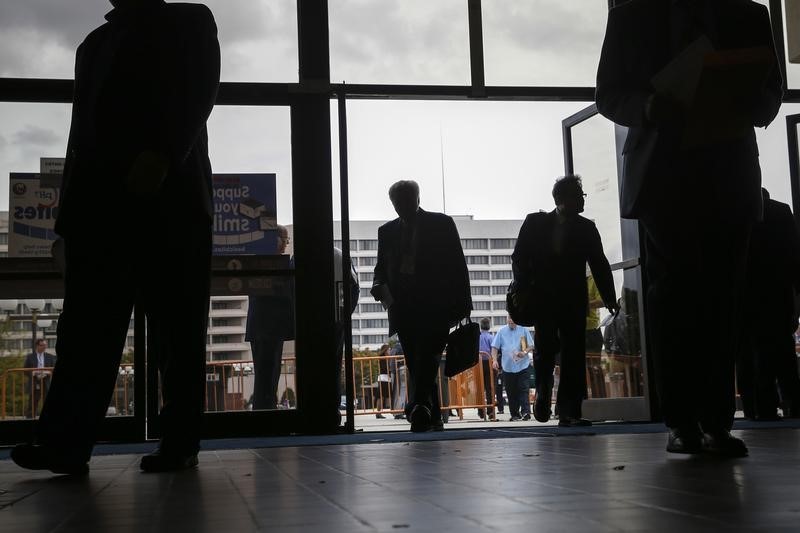"IMF Warns of Global Low Growth Risks and Escalating Debt Concerns"
International Monetary Fund (IMF) Managing Director Kristalina Georgieva warned on Thursday that the global economy risks entering a prolonged period of low growth and high debt. This scenario could leave governments with limited resources to address public needs and long-term challenges such as climate change.
Speaking at a press conference during the IMF and World Bank annual meetings in Washington, Georgieva expressed concern about increasing dissatisfaction among populations worldwide. She noted that while there is some resilience in the global economy, the outlook is not positive, with families continuing to struggle due to high prices and global growth remaining sluggish.
The IMF recently updated its economic forecasts, predicting that global GDP growth will slightly decrease from 3.2% in 2024 to 3.1% by 2029. This forecast is significantly lower than the average growth rate of 3.8% between 2000 and 2019. Additionally, global government debt is expected to exceed $100 trillion for the first time this year, with the debt-to-GDP ratio projected to reach 100% by 2030.
Highlighting the seriousness of the economic situation, Georgieva cautioned that the current trajectory could result in lower incomes, fewer jobs, and diminished government revenues. This would leave less funding to address challenges such as family support and climate change.
Conversely, G20 finance officials expressed optimism about a soft landing for the global economy, taking a stance against protectionism. The joint statement from G20 finance ministers and central bank governors acknowledged ongoing challenges while emphasizing positive expectations for a soft landing.
The G20 communication did not address Russia's invasion of Ukraine or military tensions between Israel and Palestinian militant groups such as Hamas and Hezbollah. Brazil, holding the G20 presidency, noted disagreement among members over whether these conflicts should be discussed within the group, but indicated that discussions would continue in lower-level meetings ahead of the G20 leaders summit in Rio de Janeiro in November.
Regarding China's economic outlook, Georgieva cautioned that if the Chinese government does not take decisive steps to transition its economic model towards consumer demand, growth could significantly slow down. The IMF revised China's growth forecast for 2024 to 4.8% and expects further deceleration in 2025.
IMF Chief Economist Pierre-Olivier Gourinchas and U.S. Treasury Secretary Janet Yellen stated they had not seen initiatives from Beijing to significantly boost China's domestic demand.
The IMF and World Bank meetings also took place amid concerns over the escalation of the Middle East conflict, which began a year ago with Hamas's surprise attack on Israel. Georgieva noted that an escalation could have economic implications for the region, including Egypt, which has seen an increase in IMF lending programs.
Georgieva announced plans to visit Egypt within the next 10 days to review economic conditions and potentially adjust the country's financial program due to a significant drop in Suez Canal revenues. The IMF's Middle East and Central Asia Department Director Jihad Azour stated that the scale of Egypt's program remains appropriate, while Georgieva will assess the effectiveness of the country's social protection programs in the current economic environment.


